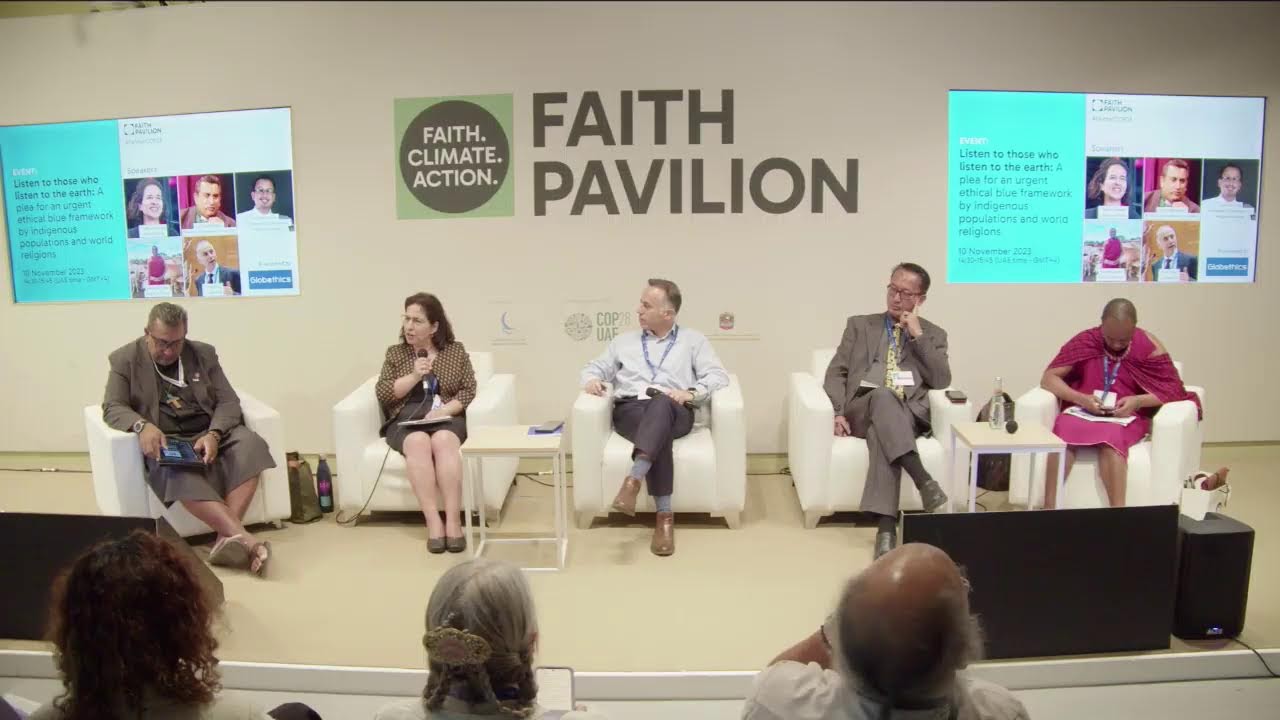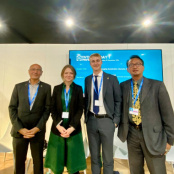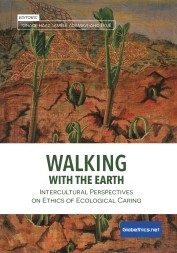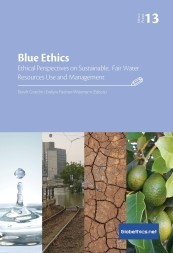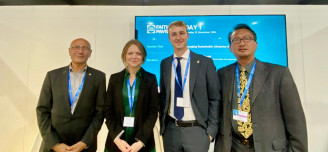Globethics hosts panel on water ethics at COP28 Faith Pavilion
On 10 December 2023, as part of the COP28 United Nations Climate Change Conference in Dubai, UAE, Globethics hosted a session at the first-ever Faith Pavilion, calling for an urgent ethical framework on water, bringing to the fore indigenous, religious, and UN perspectives.
The session, entitled Listen to those who listen to the earth, featured among its panelists the United Nations Special Rapporteur for Freedom of Religion and Belief, Nazila Ghanea, and the Special Rapporteur on the Rights of Indigenous Peoples, Francisco Cali Tzay.
The panel also offered the stage to prominent faith-based and academic actors: James Bhagwan, from Fiji, who is the Secretary General of the Pacific Conference of Churches, with Dicky Sofjan, from Indonesia, who is a senior scholar at the Indonesian Consortium for Religious Studies (ICRS) and Globethics’ East Asia Consul. The panel also included Keshoe lsaiah, youth climate and environmental champion, and indigenous advocate from the Maasai community in Kenya.
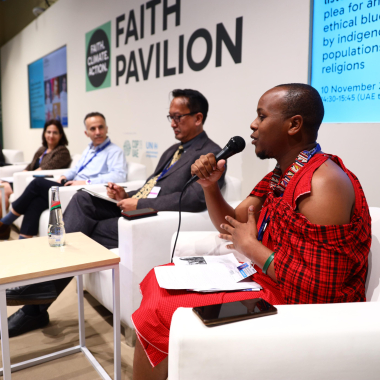
Globethics believes that to win the battles of our common future, we need to foster ethical leadership that works for a just, inclusive, and sustainable world. The panel at COP28 reflected this position and succeeded in being part of and nurturing the dynamic that somehow breaks the correlation between power and impact.
Globethics Executive Director Fadi Daou, who moderated the panel at COP28, shares his insights:
COP28 will be remembered by many for the unprecedented references to the "transition away from all fossil fuels". Indeed, this statement represents the significant progress that has only been possible due to a transformative dynamic generated by the combination of forces of civil society (including international NGOs, indigenous peoples, and faith-based organisations), the scientific community, and the countries and people most affected by the climate crisis, who deserve to be named the "global conscious community".
Many of those actors are probably disappointed about the outcome of their efforts, since their agenda has been to call for a clear commitment to the "phasing-out of fossil fuels", the only way to keep the global temperature rise below 1.5°C.
However, in my view, there is still a victory to celebrate and to build upon for the next phase, leading to COP29 in Baku, Azerbaijan, and beyond. This fragile, diverse "global conscious community" has been facing profit-lead interests and giant countries such as the USA, China, Russia, India, and the Gulf oil producers, who have been fighting back against the idea of phasing out of fossil fuels.
Important pledges have been made by those powerful countries, for example, by tripling renewables and doubling energy efficiency by 2030, and by operationalising the damage and loss fund to support developing countries. Yet, this has not diverted the attention of the "global conscious community" from the main problem of fossil fuels. A battle has been won, but the war continues to ensure a sustainable future for all.
I still have high concerns about the impact of the environmental crisis on our future. But I also have high hopes that this growing global conscious community will increase its impact and succeed, as it did in Dubai, not only to shape the narrative about sustainability, but also to influence the related policies.
